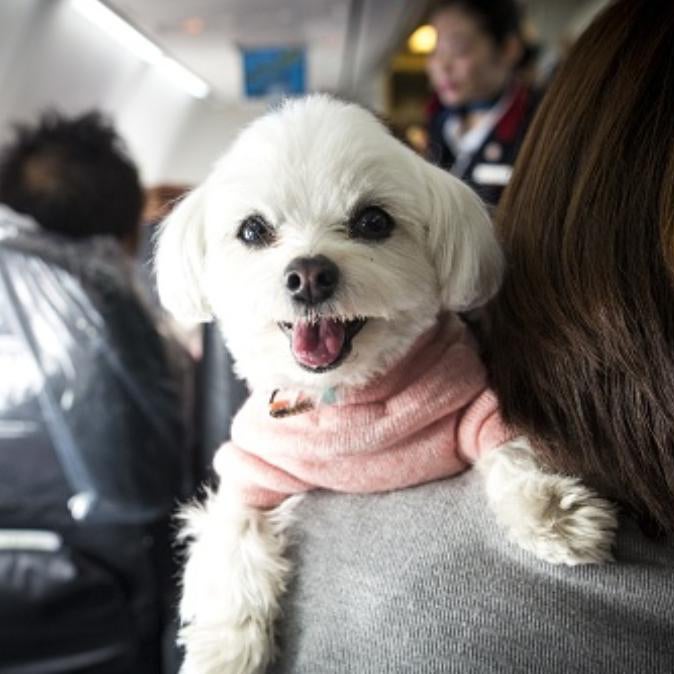The plague of small, poorly trained dogs and other fake service animals on flights may be nearing its end. Delta just tightened its emotional support animal policy, making the airline a little friendlier for humans.
Those people wishing to travel with an emotional support dog will now have to upload their documentation for each flight, 48 hours in advance. Additionally, Delta has banned most non-dog emotional support animals, including snakes, hedgehogs, any animal with tusks and/or hooves, and . There’s also new language clarifying the airline’s right to “reaccommodate” passengers with poorly behaved or disruptive animals.
If all this sounds a little ridiculous to you, that’s because it is. To recap, there are two laws governing public access for service and support animals in the United States. The Americans with Disabilities Act protects access for genuine service animals—ones trained to perform a task in aid of a disabled person—in public places, while specifically precluding access for support animals—ones that provide comfort by their mere presence. The Air Carrier Access Act applies to air travel only, and specifically allows both service and support animals. The overlapping nature of these two laws, and their intentional vagueness, has created much confusion and opened the system up for abuse. (We explored the issue at length in this article.)
Delta says it’s seen a 150 percent increase in the number of support animals traveling on its planes since 2015, and an 84 percent increase in the number of incidents involving them. Those incidents include persistent barking, defecation, urination, and biting. An untrained, aggressive 70-pound emotional support dog went so far as to maul .
“The rise in serious incidents involving animals in flight leads us to believe that the lack of regulation in both health and training screening for these animals is creating unsafe conditions across U.S. air travel,” .��
This may seem like an insignificant change in policy from a single airline, but I see it as an encouraging sign that the American public, and the businesses that work for us, have begun to push back against abuses to a system designed to protect people with genuine disabilities. By bringing fake service dogs and other poorly behaved animals into public places, and claiming protection for them, entitled individuals compromise the comfort and safety of disabled people, while creating widespread animosity toward all dogs.��
Purchasing a doctor’s letter specifically so you can fly with your pet, faking one in Photoshop, or just bringing your pet into a business that only permits service animals actually works against the interests of all animal lovers. If we want greater access for our pets, or the ability for them to safely fly places with us, then we need to responsibly advocate for more pet-friendly policies. Forcing your pet’s presence on other people will end up restricting access, as we’re seeing here.
Of course, this small change in Delta’s policy probably doesn’t go far enough. As long as emotional support animals are protected under the Air Carrier Access Act, people will abuse the system. That’s what we need to change next.


